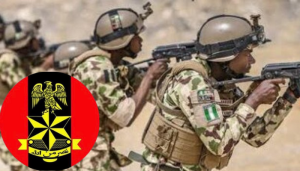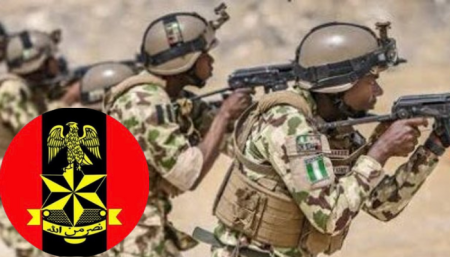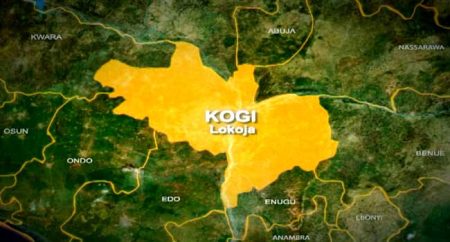Paragraph 1: The Yelwata and Daudu Attacks: A Tragedy Unfolds
The tranquil communities of Yelwata and Daudu in Benue State, Nigeria, were shattered by a series of coordinated attacks on the night of Friday and into the early hours of Saturday. Initial reports from government officials indicated a death toll of 45, a figure that would later prove to be a drastic underestimate. The attacks, attributed to armed herders, began around 11 pm on Friday, targeting vulnerable residents, many of whom were sleeping in market stalls due to previous displacement and seeking proximity to security personnel. The attackers’ methods were brutal, involving not only shootings but also the deliberate burning of people alive in their homes and stalls, using petrol as an accelerant.
Paragraph 2: Eyewitness Accounts and Mounting Casualties
Matthew Mnyan, a community leader and former government aide, painted a far more grim picture of the devastation. He estimated the death toll to be over 200, including five security officers, and described the attacks as meticulously planned. Mnyan recounted horrific scenes of families – men, women, and children – burned alive in their homes, their bodies rendered unrecognizable. He spoke of the community’s efforts to compile a list of victims, a task made difficult by the extent of the carnage. Of the 46 residents rushed to a hospital, 20 succumbed to their injuries, further underscoring the severity of the attacks. Mnyan’s account revealed the premeditation of the attacks, with reports circulating for a week prior warning of impending violence in Yelwata, Ukoho, Ortese, Yogbo, and Daudu. The attackers seemed intent on targeting these communities simultaneously, suggesting a larger, more sinister motive.
Paragraph 3: Official Confirmation and Conflicting Numbers
Official sources, while confirming the attacks, struggled to provide consistent casualty figures. The Benue State Police Public Relations Officer, DSP Udeme Edet, acknowledged the attacks and stated that some of the assailants were killed during exchanges with security forces. She also confirmed the loss of life and injuries among residents but refrained from providing specific numbers. Similarly, the Special Adviser to the state governor on internal security, Joe Har, confirmed the attacks in both Yelwata and Daudu but admitted to lacking precise casualty figures due to not being physically present at the scene. This discrepancy between official reports and eyewitness accounts created confusion and highlighted the difficulty in accurately assessing the full extent of the tragedy in its immediate aftermath.
Paragraph 4: Military Casualties and the Scope of the Violence
Further confirmation of the attacks came from a senior military officer, who revealed the deaths of two soldiers and an official of the Nigeria Security and Civil Defence Corps. The officer also reported a missing police officer. This information added another layer to the unfolding tragedy, highlighting the risks faced by security personnel responding to the violence. The attacks were not isolated incidents; just days prior, Mtswenem and Akondotyough Bawa communities in Makurdi had also been targeted, resulting in the reported deaths of 25 people. This pattern of violence raised concerns about a broader security crisis in the region and the ability of security forces to effectively protect vulnerable communities.
Paragraph 5: Personal Loss and Heartbreaking Testimonies
The human cost of the attacks became painfully clear through the testimony of Prince Aondona Isiaka, a former government aide who lost 23 family members in the Yelwata massacre. Among the victims were his uncle, Elder Amaki, along with ten other family members, and his cousin, Victor Utim. Isiaka described the harrowing scene, recalling how his cousin was burned alive in his house while attempting to escape. He detailed the gruesome discovery of his cousin’s remains, identifiable only by his skull. The deaths of Elder Amaki, his sons, wives, in-laws, and grandchildren, totaling eleven individuals, further underscored the indiscriminate nature of the violence and the profound grief it inflicted on families and the community.
Paragraph 6: The Aftermath and Lingering Questions
The attacks on Yelwata and Daudu left a trail of devastation and unanswered questions. The scale of the violence, the brutality of the attackers, and the conflicting casualty figures painted a picture of chaos and uncertainty. The reports of the attackers arriving in buses suggested a level of organization and premeditation that raised concerns about the potential for future attacks. The attacks also highlighted the vulnerability of displaced populations and the challenges faced by security forces in protecting remote communities. As the community mourned its dead and began the arduous process of rebuilding, the need for a thorough investigation and enhanced security measures became paramount. The incident underscored the urgent need for a comprehensive approach to address the root causes of the violence and prevent further tragedies.














